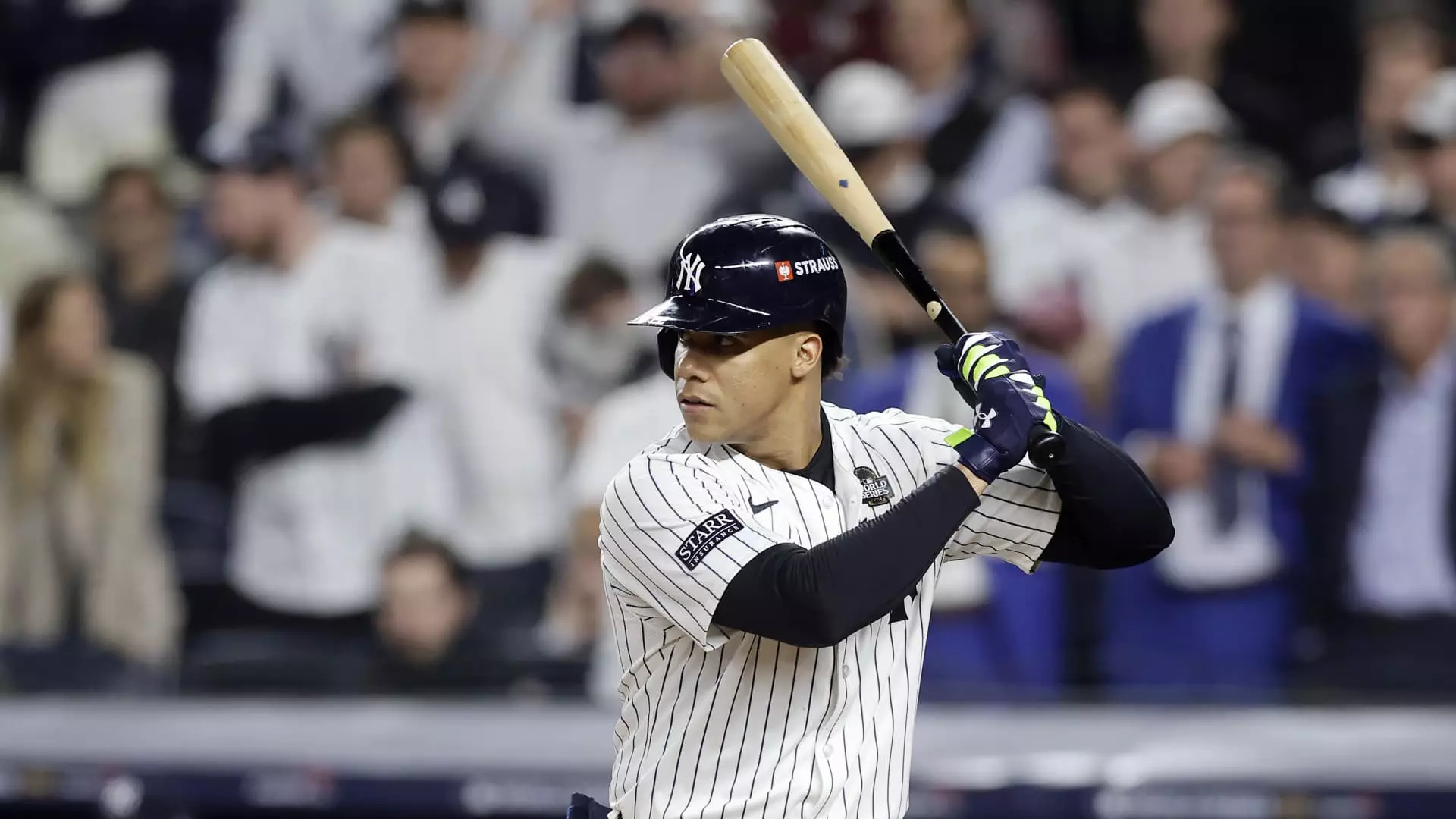The baseball world is buzzing after the New York Mets secured a groundbreaking deal with superstar outfielder Juan Soto. Reports reveal that Soto has signed a staggering 15-year contract worth $765 million, a monumental figure that marks the largest contract in sports history. This significant move brings Soto from the pinstripes of the Yankees to the Mets’ orange and blue, igniting discussions not just about team dynamics but the future of Major League Baseball itself.
The transaction is a bold statement from Mets owner Steve Cohen, who has shown an unwavering commitment to building a competitive franchise. His willingness to invest in top talent is evidenced by earlier contracts with high-profile players, such as Francisco Lindor’s 10-year, $341 million deal. The investment in Soto signifies Cohen’s intent to shift the competitive landscape of New York baseball, historically dominated by the Yankees.
Soto’s arrival significantly boosts the Mets’ already impressive offense. In the 2024 season, the Mets ranked seventh in Major League Baseball, scoring 768 runs. The acquisition of a player of Soto’s caliber enhances their offensive prowess and ensures they maintain a competitive edge, particularly as the possibility of losing first baseman Pete Alonso to free agency looms. Soto’s ability to drive in runs and his on-base discipline could be the critical components that elevate the Mets’ performance in the National League.
Despite recent successes—including a commendable rise from a turbulent start to advance to the playoffs—the Mets’ quest for a championship has remained unfulfilled. Their history is marked by two World Series titles in 1969 and 1986, but they have often played second fiddle to the Yankees, who boast an unparalleled 27 championships. The signing of Soto is not just a move to enhance their roster; it symbolizes a calculated effort to shift the balance of power in the New York baseball scene.
For the Yankees, Soto’s departure presents a significant challenge. After finishing as AL champions and making a World Series appearance, losing such a key contributor will undoubtedly have repercussions. The Yankees ranked third in MLB offensively in 2024, with Soto playing an integral role—amassing 109 RBIs alongside fellow power hitters Aaron Judge and Giancarlo Stanton. His exit leaves a void in their lineup that may be difficult to fill, especially given the importance of consistent offensive production in navigating through the highly competitive AL East.
The loss of Soto complicates the Yankees’ future strategies. With less firepower and fewer reliable run producers, the team will need to reassess its composition to remain a championship contender. Should they fail to address these gaps effectively, the Yankees may find themselves facing a prolonged period without a title, an unthinkable scenario for the franchise.
Soto’s situation shines a light on the complexities of MLB free agency. At just 26, Soto was viewed as the most coveted free agent this offseason, not only due to his elite skills but the potential for a long-term investment. Players typically gain free agency eligibility after six years of service, a factor that can deter teams from investing in older free agents. Soto’s early entry into the league as a phenom accelerated his timeline, leading to this rare opportunity for teams seeking franchise cornerstones with prime years ahead.
His exceptional performance metrics, such as a .401 on-base percentage and a strikeout rate significantly lower than the league average, further validate his worth. Soto’s disciplined approach at the plate makes him an asset in an era dominated by high strikeout rates and aggressive swings.
Juan Soto’s monumental signing with the Mets marks a significant turning point not only for the franchise but for MLB as a whole. With the potential to shift allegiances and transform the competitive landscape of New York baseball, it’s a move that will be analyzed, celebrated, and scrutinized for years to come. For Mets fans, this is a moment imbued with hope, bridging the gap between historical persistence and future grandeur, while for the Yankees, it serves as a wake-up call to recalibrate their approach as they navigate the challenges ahead. As the 2024 season approaches, both teams will be scrutinized under the lens of this pivotal trade, marking a new chapter in their storied rivalries.


Leave a Reply